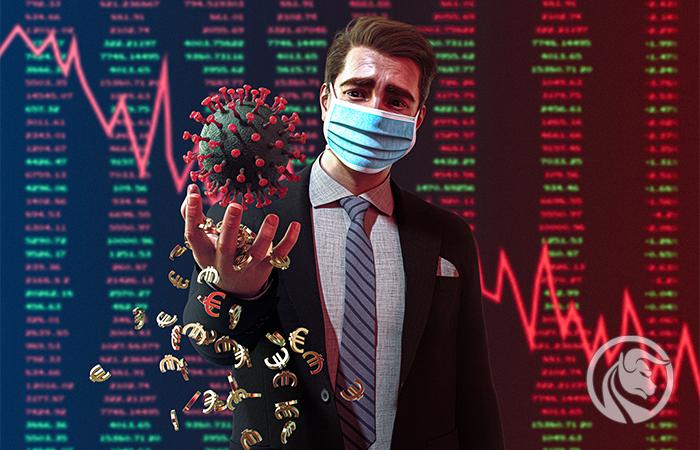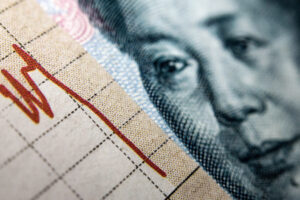The era of state capitalism after COVID-19
The era of state capitalism after COVID-19. Marxism, which has been popular again since the global financial crisis, defines state capitalism as a social system linking capitalism with state ownership or control, which in fact acts as one large corporation. It differs from communism in the sense that private ownership still exists in the system of state capitalism, and at the same time the path of the economy is marked by a strong government. State capitalism exists almost as long as capitalism itself. In 1791, Alexander Hamilton, the first treasury secretary in the United States, presented an ambitious project to protect fledgling US industry from international competition through tariffs. This is where the idea of educational protectionism originated, whose theory was created several decades later by the German economist Friedrich List after a few years in the United States.
About the Author
 Christopher Dembik - French economist of Polish origin. Is a global head of macroeconomic research at a Danish investment bank Saxo Bank (a subsidiary of the Chinese company Geely serving 860 HNW customers around the world). He is also an advisor to French parliamentarians and a member of the Polish think tank CASE, which took first place in the economic think tank in Central and Eastern Europe according to a report Global Go to Think Tank Index. As a global head of macroeconomic research, he supports branches, providing analysis of global monetary policy and macroeconomic developments to institutional and HNW clients in Europe and MENA. He is a regular commentator in international media (CNBC, Reuters, FT, BFM TV, France 2, etc.) and a speaker at international events (COP22, MENA Investment Congress, Paris Global Conference, etc.).
Christopher Dembik - French economist of Polish origin. Is a global head of macroeconomic research at a Danish investment bank Saxo Bank (a subsidiary of the Chinese company Geely serving 860 HNW customers around the world). He is also an advisor to French parliamentarians and a member of the Polish think tank CASE, which took first place in the economic think tank in Central and Eastern Europe according to a report Global Go to Think Tank Index. As a global head of macroeconomic research, he supports branches, providing analysis of global monetary policy and macroeconomic developments to institutional and HNW clients in Europe and MENA. He is a regular commentator in international media (CNBC, Reuters, FT, BFM TV, France 2, etc.) and a speaker at international events (COP22, MENA Investment Congress, Paris Global Conference, etc.).
Since then, we have seen hundreds of examples of state capitalism - mainly, of course, in the Soviet edition - but recently, this also affected many emerging economies, such as China or Russia, and the so-called strategic sectors, in particular the energy sector. For some economists, state capitalism is an inevitable stage of economic development. Historically, economic and financial crises have led to changes in the direction of clear state capitalism in the West, when governments are forced to play a greater role in the economy due to political necessity.
After the global financial crisis, the president of Eurasia Group, Ian Bremmer, wrote the famous book in which he claims that the crisis heralded the end of the free market. This bold statement proved partially correct. In a time of chaos, Western governments must play a greater role in the economy as a factor of recovery, but they are rapidly abandoning this role as soon as the economy begins to show signs of improvement.
This time is different
State capitalism can become a permanent element of the economy, at least in several countries, due to the nature of the current crisis, which differs from previous crises mainly for two reasons. First of all, this is not a "normal" recession. While in an "ordinary" recession, on average, 60-70% of enterprises suffer losses, the COVID-19 crisis has negatively affected almost 100% of enterprises in some countries where tight isolation has been introduced. The consequences of COVID-19 and depressive effects will last longer than most of us predict. Policy makers, by providing a significant injection of liquidity to the economy, have delayed this impact, but have not completely eliminated it. The second wave of economic effects will soon begin, characterized by mass unemployment and an unprecedented number of bankruptcies. In the most vulnerable countries, the relative share of the private sector in the economy will drop dramatically to the public sector, which directly or indirectly takes over a significant part of the workforce. In addition, governments are increasingly relying on quasi-permanent subsidies to protect domestic companies and reduce the level of social discontent due to the crisis.
Secondly, the next crisis will soon appear, the effects of which will be more devastating than the effects of COVID-19. Record atmospheric CO2 levels and oil spills in the Arctic due to permafrost melting are two uncomfortable phenomena that remind us that climate change continues even when we focus on a pandemic. Many people may think that a strong government is the only way to deal with the consequences of climate change, in particular to avoid further aggravating the situation of the poor.
Russian method or Singaporean model?
The Russian Federation and Singapore can serve us as two extreme examples of state capitalism today. The Russian method is a negative example. Since the nationalization of Yukos, the government of the Federation has taken control of part of the private sector, so that now 55% of the economy is in the hands of the state, and 28% of the workforce is directly employed by the government - the highest level since the mid-90s. Government control over the economy is characterized lack of structural reforms and an increase in the share of extremely rich entities in the private sector. The de facto Soviet nomenclature was replaced by new elites close to government circles.
The other extreme is Singapore, often quoted as an exemplary example of state capitalism. Since the 70s, Singapore has moved away from widespread laissez-faire in the neighboring countries and the state played a central role in the economy as a major shareholder in domestic industry and trade. In this way, it managed to successively create competitive enterprises in key market segments, such as advanced technologies or semiconductors, for the benefit of most citizens. Of course, between these two extremes there is an indirect dependent path, among others from political culture in individual countries.
Covid-19 and the secondary effects of state capitalism
As we have painfully seen in the past, nothing is ever free in economics. The significant negative implications of the trend towards state capitalism must be taken into account. Most likely, more and more governments will resort to protectionism through regulations that will significantly change the rules of the game to protect their markets and businesses from foreign competition. History teaches us that almost every time it leads to a situation where everyone is lossy: to unemployment, a decrease in foreign investment, loss of competitiveness, etc.
As property inequality is likely to increase in the post-crisis period, governments may also be inclined to fight market forces of supply and demand by imposing administrative prices. We have seen this kind of test recently in the context of top-down dictation of mask prices or the amount of rent in some countries. Administrative prices are sometimes needed, e.g. for some medicines, but the pricing mechanism should be the basic principle. Otherwise, it will lead to a decrease in supply, and in some cases even to the development of the black market.
Undoubtedly, governments now have legitimate reasons to intervene to save the economy. However, it should be remembered that this support should be temporary, as it is associated with negative effects that may significantly affect the proper functioning of the economy.






















![Forex Club – Tax 9 – Settle tax on a foreign broker [Download the Application] Forex Club - Tax 9](https://forexclub.pl/wp-content/uploads/2024/02/Forex-Club-Podatek-9-184x120.jpg?v=1709046278)
![Trading View platform – solutions tailored to the needs of traders [Review] trading view review](https://forexclub.pl/wp-content/uploads/2024/03/trading-view-recenzja-184x120.jpg?v=1709558918)
![How to connect your FP Markets account to the Trading View platform [Guide] fp markets trading view](https://forexclub.pl/wp-content/uploads/2024/02/fp-markets-trading-view-184x120.jpg?v=1708677291)
![How to invest in ChatGPT and AI? Stocks and ETFs [Guide] how to invest in chatgpt and artificial intelligence](https://forexclub.pl/wp-content/uploads/2023/02/jak-inwestowac-w-chatgpt-i-sztuczna-inteligencje-184x120.jpg?v=1676364263)


![WeWork – the anatomy of the collapse of a company valued at $47 billion [WeWork, part II] wework bankruptcy story](https://forexclub.pl/wp-content/uploads/2024/04/wework-bankructwo-historia-184x120.jpg?v=1711729561)
![Adam Neumann – the man who screwed up Softbank [WeWork, part AND] adam neumann wework](https://forexclub.pl/wp-content/uploads/2024/04/adam-neumann-wework-184x120.jpg?v=1711728724)





![How to transfer shares to another brokerage office [Procedure description] how to transfer shares to another brokerage house](https://forexclub.pl/wp-content/uploads/2024/03/jak-przeniesc-akcje-do-innego-biura-maklerskiego-184x120.jpg?v=1709556924)

![The most common mistakes of a beginner trader - Mr Yogi [VIDEO] Scalping - The most common mistakes of a beginner trader - VIDEO](https://forexclub.pl/wp-content/uploads/2024/03/Scalping-Najczestsze-bledy-poczatkujacego-tradera-VIDEO-184x120.jpg?v=1711601376)
![Learning patience: No position is also a position - Mr Yogi [VIDEO] Scalping - Learning patience - No position is also a position - VIDEO](https://forexclub.pl/wp-content/uploads/2024/03/Scalping-Nauka-cierpliwosci-Brak-pozycji-to-tez-pozycja-VIDEO-184x120.jpg?v=1710999249)
![When to exit a position and how to minimize losses - Mr Yogi [VIDEO] Scalping - When to exit a position and how to minimize losses - VIDEO](https://forexclub.pl/wp-content/uploads/2024/03/Scalping-Kiedy-wyjsc-z-pozycji-i-jak-minimalizowac-straty-VIDEO-184x120.jpg?v=1710336731)


















